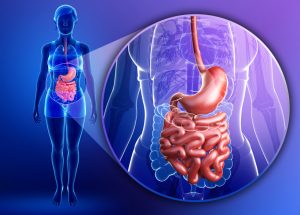In a week, how many times do you binge drink? How many drinks do you consume? Based on statistics, one out of six adults in the U.S. binges in the past month, where they consume around seven drinks in less than two hours. This unhealthy behavior is a serious concern in the U.S. because many individuals are doing it, approximately 67 million Americans binge in a month.
Having said that, the short-term effects of excessive alcohol drinking is mostly known to everyone, yet not all know its long-term health consequences. In this article, we are going to share this topic and hope it can help increase the awareness of everyone.
You can always seek help from a psychiatrist or doctor if you think your drinking habits are beyond control. Continue reading to learn more about it.
Alcohol Drinking and Death Count
 Alcohol abuse is considered the fifth leading cause of death in the U.S., where it also highly contributes to most physical injuries and disablement among adolescents and adults. Most victims of binge drinking are within the age group 15 to 59 years, where 7.4% are male and 1.4% are female drinkers.
Alcohol abuse is considered the fifth leading cause of death in the U.S., where it also highly contributes to most physical injuries and disablement among adolescents and adults. Most victims of binge drinking are within the age group 15 to 59 years, where 7.4% are male and 1.4% are female drinkers.
On average, approximately 88,000 deaths in the U.S. are accounted for by binge drinking, which makes it highly alarming. Moreover, expenses incurred from this intense drinking pattern are summed up to $191.1 billion, or 77% of the total cost accounted for alcohol-related incidents.
Long Term Health Consequences of Binge Drinking
Besides the short-term impacts when you excessively drink for a shorter time frame, you also need to know what it can do to your system in the long-run. If you continue to binge every week, then you are exposed to a high risk of developing dependence, and later alcoholism. Therefore, to prevent this from happening, it’s wise to seek external advice and help from trained and licensed medical personnel.
Going back, here are the serious long-term health consequences you can get when you continually binge drink.
Inflammation of Intestine and Gut Problems
 Your gastrointestinal tract is the most exposed or injured organ when you intensely consume alcohol. The acidic property of alcohol can cause serious inflammation in your intestine, especially when you haven’t eaten while binging.
Your gastrointestinal tract is the most exposed or injured organ when you intensely consume alcohol. The acidic property of alcohol can cause serious inflammation in your intestine, especially when you haven’t eaten while binging.
Conversely, too much alcohol in your gut also creates an imbalance between the good and bad bacteria inside your stomach. The good bacteria present in your stomach are Lactobacillus and Bifidobacterium, while the bad ones are Proteobacteria and Bacilli.
If you continue with your binge drinking, then there’s a higher chance that these bad bacteria will be in higher concentration than the good ones, which leads to further damage to your intestine and gut.
Sadly, when you binge drink, there’s no food taken most of the time, so it increases the risk of injuring your intestines. With that, you need to drink moderately, that is, consuming a controlled number of drinks while eating food at the same time.
Alcoholic Liver Disease
Your liver is the second-most injured organ when you binge drink every week, that’s because it’s solely responsible for breaking down alcohol into smaller components. As alcohol enters your system, it is metabolized inside the liver and converted to acetaldehyde. The toxic and carcinogenic nature of acetaldehyde poses a serious threat to your liver, especially when it’s in higher concentration inside your body.
Conversely, excessive drinking can lead to alcohol-related liver diseases (ARLD), which can be categorized into three main stages – fatty liver, hepatitis, and cirrhosis.
- Fatty Liver due to Alcohol
When you binge every week, you have a great chance of having an alcoholic fatty liver disease. It’s the first stage of alcohol-related liver disease (ARLD), yet you can still reverse this one by abstaining from drinking for at least two straight weeks.
- Alcohol-induced Hepatitis
If you continue binge drinking, then the second stage is alcoholic hepatitis. You can still heal from this one when you permanently stop drinking and coupled with prescribed medications from your doctor.
However, if you continue drinking and ignore your diagnosis, then it can lead to death. Here are some symptoms when you already have liver disease due to alcohol drinking.
- Sudden weight loss
- Jaundice skin and eye color
- Your stomach and ankles swell
- Frequent dizziness and feeling sick
- Presence of blood in your vomit and stool
- Cirrhosis
It’s the terminal stage of alcohol-induced liver disease where your organ gained tremendous scars because of too much alcohol in your body. In the U.S., liver cirrhosis due to alcohol is the 11th top cause of death among Americans, where around 44,478 people died of it in 2016. Moreover, around 50% of the mortality rate due to liver cirrhosis was caused by alcohol drinking.
Alcoholic Pancreatitis
 An excess amount of alcohol will also cause inflammation in your pancreas. So far, binge and heavy alcohol drinking contribute to a 17% to 25% chance for you to develop acute alcoholic pancreatitis. Typically, if you’ve been drinking for five consecutive years, then you have a great chance of getting this disease.
An excess amount of alcohol will also cause inflammation in your pancreas. So far, binge and heavy alcohol drinking contribute to a 17% to 25% chance for you to develop acute alcoholic pancreatitis. Typically, if you’ve been drinking for five consecutive years, then you have a great chance of getting this disease.
In the U.S., most hospitalization due to gastrointestinal problems is caused by alcohol pancreatitis, where its economic burden sums up to 2.6 billion for healthcare expenses. On average, there are 279,000 annual cases of hospitalization due to acute pancreatitis due to alcohol drinking.
If we look at the rate of its occurrence, approximately 13 to 45 out of 100,000 individuals are diagnosed with acute pancreatitis every year. For chronic pancreatitis, that will be 5 to 12 per 100,000 individuals.
Alcohol-related Immune System Diseases
Having too much alcohol in your body will also hurt and decrease the performance of your immune system. Having said that, it exposes you to the risks of acquiring immunodeficiency-related diseases such as pneumonia, tuberculosis, HIV, hepatitis C, and B.
In general, when there’s too much alcohol in your system, it decreases the concentration of white blood cells in your blood, which leads to your susceptibility to different diseases.
Alcohol-related Brain Damages
Alcohol is a known sedative substance that slows down your brain and body processes. Most binge drinkers experience blackouts and memory lapses due to the sudden surge of alcohol content in their blood. Besides that, here are some other effects of excess alcohol in your body:
- Bleary vision
- Sluggish speaking ability
- Depressed reaction time and muscle coordination
- Inability to maintain balance while walking
These are just some of the typical brain damages done by alcohol to you or anyone who consumes it. Conversely, women are more susceptible to the damages of alcohol drinking than men. It’s not just limited to brain dysfunctions, but all long-term health consequences of uncontrolled alcohol consumption.
Poor Nutrition
 Lastly, you can also see that most alcoholics and binge drinkers suddenly lost weight, right? Well, that’s because of the decreased capability of your intestine to absorb nutrients during digestion since it’s already inflamed by too much alcohol content in your gut.
Lastly, you can also see that most alcoholics and binge drinkers suddenly lost weight, right? Well, that’s because of the decreased capability of your intestine to absorb nutrients during digestion since it’s already inflamed by too much alcohol content in your gut.
Having said that, most drinkers have very poor nutrition, which puts them in greater danger of acquiring various diseases. Moreover, excess alcohol in your system disrupts the normal production of red blood cells in your bone marrow, which can lead to anemia.
All things considered, you need to start cutting off from your alcohol consumption so that you can avoid these long-term health problems. If you are having a difficult time controlling your drinks, then consult with an addiction specialist or doctor about it.
